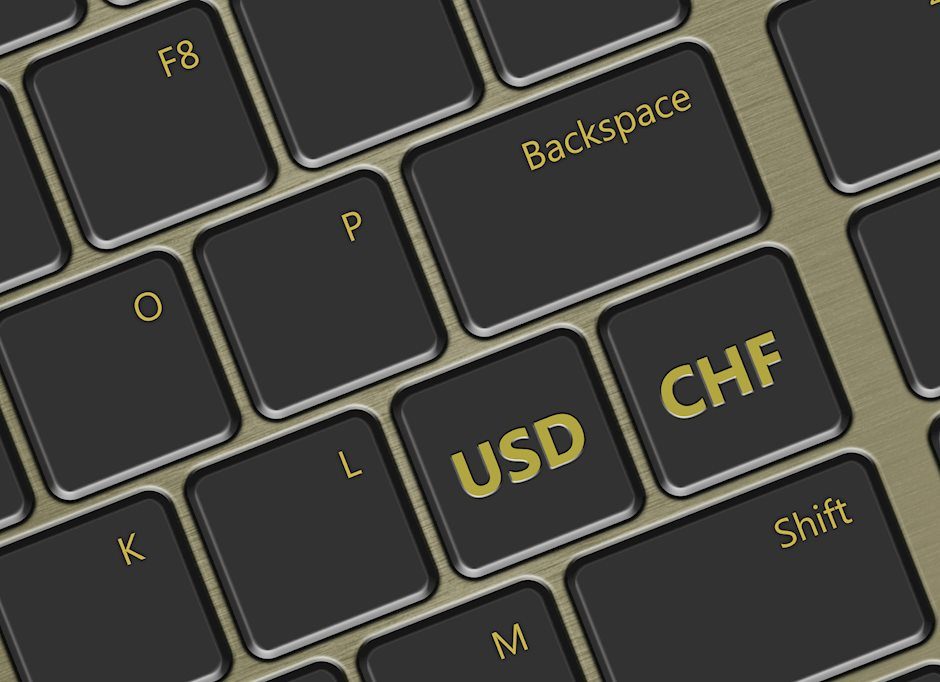USD/CHF holds below 0.9050 on Trump tariff confusion
- USD/CHF loses traction to near 0.9040 in Tuesday’s early European session.
- Trump's tariff confusion and cautious mood boost the Swiss Franc against the USD.
- The cautious stance of the Fed might cap the downside for the pair.

The USD/CHF pair trades on a softer note around 0.9040 during the early European trading hours on Tuesday. The US Dollar (USD) weakens due to confusion about President-elect Donald Trump’s tariff plans. Investors will monitor how aggressive Trump's policies could be when he takes office. Later on Tuesday, the preliminary reading of the Eurozone Harmonized Index of Consumer Prices (HICP) for December will be released.
Washington Post reported on Monday that Trump is considering a tariff plan that will narrow the focus to a select set of goods and services. However, Trump denied the report in a post on Trust Social, saying “That is wrong. Investors sentiment turn cautious ahead of this week's release of the Federal Open Market Committee (FOMC) minutes and the US Nonfarm Payrolls (NFP) report on Wednesday and Friday, respectively. This, in turn, drags the Greenback lower against the Swiss Franc (CHF).
Additionally, the persistent geopolitical tensions in the Middle East and the ongoing Russia-Ukraine war could boost the CHF, a safe-haven currency, and create a headwind for the pair. The local news agency, Aljazeera, reported that Israel's continuous bombing of Gaza continues, with six persons killed, including a child, killed in its latest attacks on residential buildings, bringing the total number of deaths on Monday to at least 28.
However, the cautious stance of the US Federal Reserve (Fed) officials could help limit the USD’s losses. Fed Governor Lisa Cook said on Monday that Fed policymakers could be more cautious with further rate cuts, citing labor market resilience and stickier inflation. Several Fed policymakers are scheduled to speak later this week. Any hawkish comments from Fed officials could lift the Greenback against its rivals in the near term.
Swiss Franc FAQs
The Swiss Franc (CHF) is Switzerland’s official currency. It is among the top ten most traded currencies globally, reaching volumes that well exceed the size of the Swiss economy. Its value is determined by the broad market sentiment, the country’s economic health or action taken by the Swiss National Bank (SNB), among other factors. Between 2011 and 2015, the Swiss Franc was pegged to the Euro (EUR). The peg was abruptly removed, resulting in a more than 20% increase in the Franc’s value, causing a turmoil in markets. Even though the peg isn’t in force anymore, CHF fortunes tend to be highly correlated with the Euro ones due to the high dependency of the Swiss economy on the neighboring Eurozone.
The Swiss Franc (CHF) is considered a safe-haven asset, or a currency that investors tend to buy in times of market stress. This is due to the perceived status of Switzerland in the world: a stable economy, a strong export sector, big central bank reserves or a longstanding political stance towards neutrality in global conflicts make the country’s currency a good choice for investors fleeing from risks. Turbulent times are likely to strengthen CHF value against other currencies that are seen as more risky to invest in.
The Swiss National Bank (SNB) meets four times a year – once every quarter, less than other major central banks – to decide on monetary policy. The bank aims for an annual inflation rate of less than 2%. When inflation is above target or forecasted to be above target in the foreseeable future, the bank will attempt to tame price growth by raising its policy rate. Higher interest rates are generally positive for the Swiss Franc (CHF) as they lead to higher yields, making the country a more attractive place for investors. On the contrary, lower interest rates tend to weaken CHF.
Macroeconomic data releases in Switzerland are key to assessing the state of the economy and can impact the Swiss Franc’s (CHF) valuation. The Swiss economy is broadly stable, but any sudden change in economic growth, inflation, current account or the central bank’s currency reserves have the potential to trigger moves in CHF. Generally, high economic growth, low unemployment and high confidence are good for CHF. Conversely, if economic data points to weakening momentum, CHF is likely to depreciate.
As a small and open economy, Switzerland is heavily dependent on the health of the neighboring Eurozone economies. The broader European Union is Switzerland’s main economic partner and a key political ally, so macroeconomic and monetary policy stability in the Eurozone is essential for Switzerland and, thus, for the Swiss Franc (CHF). With such dependency, some models suggest that the correlation between the fortunes of the Euro (EUR) and the CHF is more than 90%, or close to perfect.
Author

Lallalit Srijandorn
FXStreet
Lallalit Srijandorn is a Parisian at heart. She has lived in France since 2019 and now becomes a digital entrepreneur based in Paris and Bangkok.

















